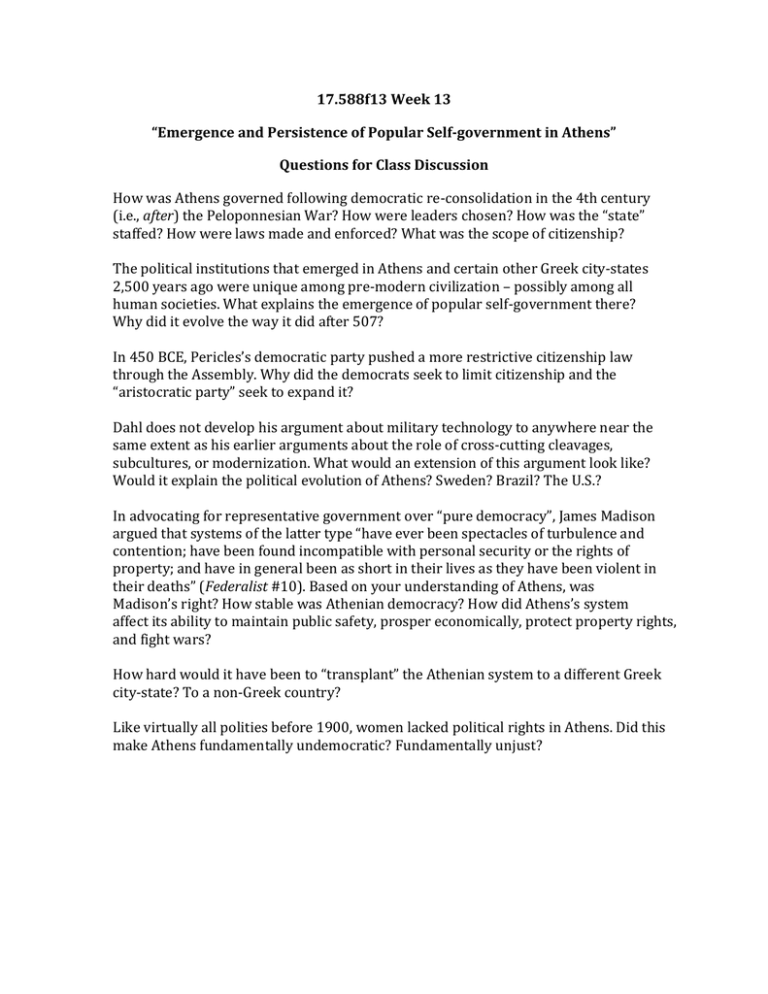17.588f13 Week 13 “Emergence and Persistence of Popular Self-government in Athens”
advertisement

17.588f13 Week 13 “Emergence and Persistence of Popular Self-government in Athens” Questions for Class Discussion How was Athens governed following democratic re-consolidation in the 4th century (i.e., after) the Peloponnesian War? How were leaders chosen? How was the “state” staffed? How were laws made and enforced? What was the scope of citizenship? The political institutions that emerged in Athens and certain other Greek city-states 2,500 years ago were unique among pre-modern civilization – possibly among all human societies. What explains the emergence of popular self-government there? Why did it evolve the way it did after 507? In 450 BCE, Pericles’s democratic party pushed a more restrictive citizenship law through the Assembly. Why did the democrats seek to limit citizenship and the “aristocratic party” seek to expand it? Dahl does not develop his argument about military technology to anywhere near the same extent as his earlier arguments about the role of cross-cutting cleavages, subcultures, or modernization. What would an extension of this argument look like? Would it explain the political evolution of Athens? Sweden? Brazil? The U.S.? In advocating for representative government over “pure democracy”, James Madison argued that systems of the latter type “have ever been spectacles of turbulence and contention; have been found incompatible with personal security or the rights of property; and have in general been as short in their lives as they have been violent in their deaths” (Federalist #10). Based on your understanding of Athens, was Madison’s right? How stable was Athenian democracy? How did Athens’s system affect its ability to maintain public safety, prosper economically, protect property rights, and fight wars? How hard would it have been to “transplant” the Athenian system to a different Greek city-state? To a non-Greek country? Like virtually all polities before 1900, women lacked political rights in Athens. Did this make Athens fundamentally undemocratic? Fundamentally unjust? MIT OpenCourseWare http://ocw.mit.edu 17.588 Field Seminar in Comparative Politics Fall 2013 For information about citing these materials or our Terms of Use, visit: http://ocw.mit.edu/terms.

